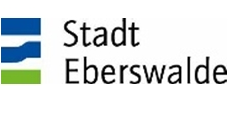Quality Management
The Goals
- Improvement of quality in the existing study programmes
- Quality oriented choice of university applicants / increasing the number of students
- Implementation of university didactic training, in part based upon the results of evaluations
Further market oriented structuring of programmes (for example, reviewing the options for expanding dual study programmes)
Course Evaluation
The studentsâ evaluation of courses is an important aspect of overall quality control at the University of Applied Sciences in Eberswalde.
It is the task of all those involved in the teaching and learning processes at the university to contribute to the improvement of their effectiveness.
The studentsâ evaluation of courses is the first step in the evaluation process of university programmes.
The university provides the organisational structure for the evaluation of courses, thus offering professors and teaching staff the opportunity to guarantee a high level of quality in their courses.
The organisational work involved and the time such evaluations take is reduced, both for the teachers as well as for the students, by using an online questionnaire. The results of the evaluation related to individuals are not made public. The studentsâ questionnaires remain anonymous.
Service Guarantee for Students / Student Obligation to Participate
The âGuidelines for a higher Awareness of oneâs own Obligationsâ was developed in cooperation with Professor Hans-Peter Benedikt.
This document, offering new impulses for teachers and professors at the University of Applied Sciences in Eberswalde, serves as a service guarantee for students, but also notes the obligation of students; its overall intention is to improve the quality of courses and study programmes.
Systematic Development of Teaching and Examination Competence among University Staff
The continual training of academic and non-academic staff assures consistent quality following the strategic targets laid out by the university.
The concept of this continual training should, however, represent more than an unsystematic collection of the names of course participants. More important is the systematic and goal-oriented continuing development of teaching and examination competence within the framework of strategic staff improvement.










